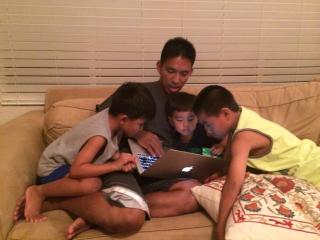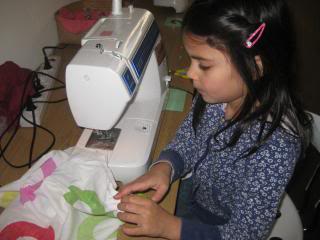
Pam Sorooshian wrote:
There are times in life that you won't feel like you can take care of others around you as well as you'd like. You need nurturing yourself and other people's neediness starts to be draining on you.
I've felt that, too.
But I've also found that if I focus more on "seeing" my kids with loving-eyes focus, consciously choose to pay attention to what I love about them, then I actually begin to feel more nourished and strengthened by them, and by the very acts of caring for them.
Partly what is so draining is that your mind is on other things while your kids want your attentiveness on them. So you feel pulled and that is stressful. If you can, try to stop thinking about the other stuff and focus on the little details of what you're doing at the moment. If your child wants pasta at midnight (just happened here), then you go put the water in the pot and put it on the stove. While you're doing that, concentrate on feeling the coldness of the water, the heaviness of the pot as it fills with water. Hear the sound of the water running.
It is late and I'm not being as articulate as I'd like—but what I'm saying is to practice being totally "in the moment" by noticing every sensation—sound, touch, smell, etc. Especially do this in regard to your children—touch them, smell them, listen to the sound of their voices, and so on.
Even if you only manage to get into this heightened state of mind for a minute or two at a time, do it as often as you think of it throughout your day. Each minute will be refreshing—it is a form of meditation that you can do while you're going about your daily activities.
—Pam Sorooshian
photo by Janice Casamina Ancheta

 Is it for a good and real reason or is the parent saying no reflexively? I think it's an important mental exercise in creative thinking to examine "Why am I saying no?" There may actually be a good and real reason to say no. Maybe with a little creativity the answer can be yes. Maybe it can be "yes, but not now." Or "Yes, but not here."
Is it for a good and real reason or is the parent saying no reflexively? I think it's an important mental exercise in creative thinking to examine "Why am I saying no?" There may actually be a good and real reason to say no. Maybe with a little creativity the answer can be yes. Maybe it can be "yes, but not now." Or "Yes, but not here." 


